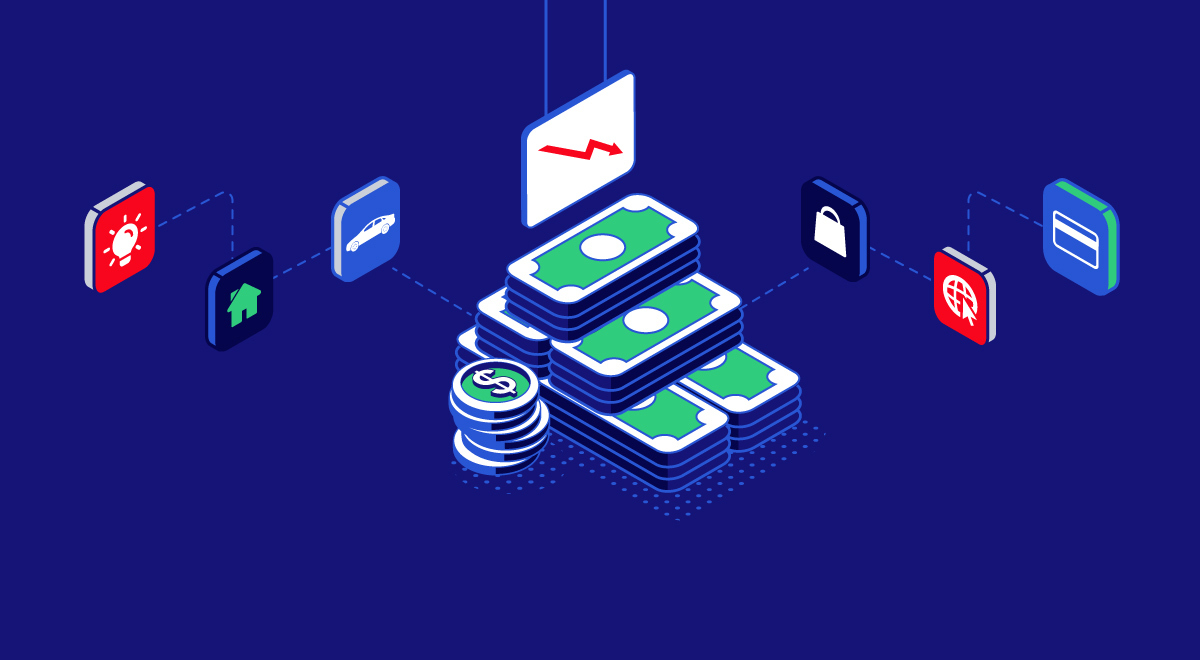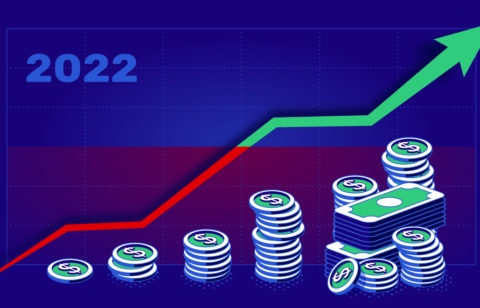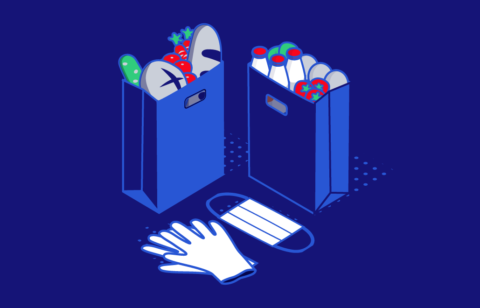While most of the United States is under lockdown due to the novel coronavirus pandemic, the economic effects of this crisis are likely to endure long after the virus subsides. The International Monetary Fund recently indicated that the economic downturn following the coronavirus could rival the Great Depression, meaning many businesses could remain shuttered and millions of Americans could be out of work. If you believe you’re at risk of the coronavirus’ economic effects, or you’ve already been impacted by them, here are some important tips on how to adjust your spending in a financial crisis.
Take Control of Your Key Bills
If you expect to lose your job or significant parts of your income due to the crisis, you need to take an active approach to all your key expenses. Make a list of all the bills you currently have, such as your mortgage, car payments, utilities, and debt bills. Determine how much money you have coming in to cover all these bills, too. If you’re coming up short, reach out to some of the companies involved to see if you can get an extension or adjust your payments. In some cases, lenders are allowing borrowers to miss several months of mortgage payments to get back on their feet, and many utility companies have made their payment terms more generous due to this crisis.
If you currently use an online bill-paying service, you should cease all your automatic payments as well. If your financial situation changes drastically due to a job loss, you may not be able to pay all your bills as you did before the crisis. Instead, you should monitor all your upcoming expenses and pay them manually until the crisis is over and your financial situation improves. This will ensure you have the funds available in your account to cover all these bills and ensure that you don’t inadvertently overdraw your account.
Cut Your Expenses
If you’re not already living in lean times with less money coming in, you need to prepare your household for living with diminished income. Take stock of your current living expenses and find areas where you can reduce spending. For example, you may be paying for expensive data and services on your phone that you don’t need; eliminating them can help you save a great deal of money on your monthly phone bill. If you signed up for multiple online content-streaming services, you should cancel several of those as well. Overall, keep cutting your household expenses until your budget matches the income you still have coming in.
You should try to reduce your personal debt as much as possible during the financial crisis as well. Try not to accumulate any more debt on your credit cards; higher balances will lead to higher monthly payments, which will be difficult to manage with less income. If you can, try to consolidate your credit card balances onto a card with a lower interest rate. A balance transfer can help reduce your monthly payment burden and help keep your debt expenses under control until you get back on your feet.
Get Smart on Groceries
Grocery shopping during the coronavirus crisis, with its empty shelves, directional arrows on the floor, and temperature checks, has been challenging. While some of these challenges may go away in the next few months, you can expect managing your grocery bill to remain a critical task as the financial crisis continues. Overall, your grocery-shopping plan should be as lean as the rest of your budget. Forget about hunting for sales items, and focus on buying foods that last, with long shelf lives or that can be made into appetizing leftovers for a day or two after they’ve been prepared. Starches such as rice and pasta are great, versatile choices to add to your pantry, and consider buying more frozen foods as well.
Additionally, while ordering takeout may be convenient, it’s more expensive than preparing foods yourself; plan to cook your own meals most of the time until the financial crisis is over. Finally, if you have space to do so, consider growing a little of your own produce as the weather gets warmer. Tomatoes, greens, and other vegetables are easy to grow, and seeds or nursery stock are relatively inexpensive. A small garden can produce a surprising amount of food, and you’ll eat well while saving a bit of money on your monthly grocery bill at the same time.
Rethink Your Savings
If you have savings you’ve been setting aside for a big purchase such as a home or a new car, you should definitely reconsider how to use that money during the financial crisis. While it can be difficult to let go of a major life goal you’ve been working hard to achieve, it may be necessary to repurpose that money to get you through the crisis. It may make sense to use those savings to help make up your budget shortfall over the next several months, as your bills are higher than your monthly income; money from your savings account may give you leeway to start searching for a new job without worrying about falling too far behind on your bills.
Living through the coronavirus pandemic hasn’t been easy for anyone, and the financial crisis that’s likely to follow it will be equally challenging. However, you can take steps right now to prepare for living through tough times. If you follow these tips here, you’ll be able to have your household spending set to be in the best position to weather the financial crisis and be ready to come through it as the economy slowly recovers.





